Photographs: Courtesy, Jindal Steel & Power Sudheer Pal Singh
On July 16, Jindal Steel & Power, the flagship company of Naveen Jindal, terminated the contract to develop the El Mutun iron ore mines in Bolivia.
The mines are said to have 40 billion tonnes of ore, of which Jindal Steel Bolivia, a subsidiary of Jindal Steel & Power, had the rights to develop half -- 20 billion tonnes. To put in perspective, all of India's iron ore deposits add up to 28.5 billion tonnes.
The agreement also required Jindal Steel & Power to set up a pellet plant of 10 million tonnes per annum, a sponge iron unit of 6 million tonnes, a steel factory of 1.7 million tonnes and a 450-Mw power plant. The total investment was $2.1 billion. It would have been the Andean country's first integrated steel facility and its largest foreign investment.
...
Why Jindal Steel exited its $2.1 bn venture in Bolivia
Photographs: Courtesy, Jindal Steel & Power
Two days later, the left-leaning Evo Morales government hit back. "Jindal was simply trying to make investments on the basis of our potential (sic)," Mining Minister Mario Virreira said at a news conference.
"They don't have their own capital; they were just speculating with stock markets and trying to invest on the back of that." Hector Cordova, the head of Comibol, Bolivia's state-owned mining company, said the government would call for fresh bids for the mines by the end of the year and steel would be produced at the site by 2014.
"Jindal's exit," he told a news agency, "gives us an opportunity to team up with a serious company that has the technical and economic capacity to guarantee the project's success.
...
Why Jindal Steel exited its $2.1 bn venture in Bolivia
Photographs: Courtesy, Jindal Steel & Power
Virreira had called Jindal Steel & Power executives for talks to Bolivia on July 20. It was perhaps meant to be the final attempt to salvage the Morales government's showpiece project.
But the Indian executives became suspicious because criminal complaints had been lodged against some of them and they were, therefore, unwilling to go. Instead, they said, the meeting could happen at a "neutral" venue or through video link.
That meeting never happened. Instead, on that day, the Bolivian government arrested two employees of Jindal Bolivia, confiscated its equipment and other assets and deployed armed personnel at the mining site near Porto Suarez.
...
Why Jindal Steel exited its $2.1 bn venture in Bolivia
Photographs: Jose Luis Quintana/Reuters
Back in India, Jindal Steel & Power wrote to Foreign Minister S M Krishna, asking him to step in and resolve the issue.
Jindal is an MP of the ruling Congress party; maybe that will galvanise the foreign office into action. His interest is to recover the real estate, equipment and raw material seized by the Bolivian government.
Jindal Steel & Power is yet to assess the value of those assets. Overall, it had invested close to $100 million.
...
Why Jindal Steel exited its $2.1 bn venture in Bolivia
Photographs: Reuters
It had started on a very pleasant note. In June 2006, Jindal had beaten rivals like Lakshmi Niwas Mittal to get the El Mutun mines. There were all-night celebrations in La Paz, the Bolivian capital, and people came out on the streets to dance.
The project, after all, was supposed to provide direct employment to 5,000 Bolivians and indirect employment to another 10,000. The media flashed pictures of the lean and fit Jindal and the stocky Morales, with broad smiles all over.
A month later, sitting at TK's, the oriental grill at South Delhi's Hyatt Regency, a stone's throw from his office, Jindal had told Business Standard how he was learning Spanish (the official language of Bolivia).
"I always liked the language," he had said. Funding the project, Jindal had said, wouldn't be a problem because there were "enough people who would like to invest in it through debt". He had also talked of listing the Bolivian company in the stock markets on a later date.
...
Why Jindal Steel exited its $2.1 bn venture in Bolivia
Image: Bolivia's President Evo Morales (L) shakes hands with Naveen JindalPhotographs: Jose Luis Quintana/Reuters
For the Morales government, it was a gigantic leap of faith. Morales became president of Bolivia in early 2006. He is leader of the Movement for Socialism party as well as the Cocalero trade union (of coca farmers and miners), and is a firm ally of the Hugo Chavez government in Venezuela and the Fidel Castro government in Cuba.
He is also known to be an admirer of Che Guevara (1928-1967) who waged war against big business and the Church. It is clear where Morales' heart lies.
So, when he got Jindal to commit $2.1 billion to his country, it was meant to be a clear signal to the rest of the world that he was a pragmatic man. A businessman from a significant emerging market was ready to trust him with some serious money.
...
Why Jindal Steel exited its $2.1 bn venture in Bolivia
Photographs: Pawan Kumar/Reuters
But the socialist traits began to show soon. Morales nationalised the Bolivia operations of Brazil's Petrobras in 2006, a telecom company of Telecom Italia in 2008, and four power companies in 2010 (one French, one British and one Bolivian, in addition to one local cooperative).
This year, a month or so before the Jindal pullout, the Morales administration took over a tin (and zinc) mine of Glencore. The nationalisation, the Switzerland-based and London-listed commodity trader prophesied, "will pose a number of serious questions relating to the government's future policy towards foreign investment in the mining sector".
And a fortnight after Jindal Steel & Power announced its exit, Bolivia expropriated Vancouver-based South American Silver's silver, indium and gallium mines.
...
Why Jindal Steel exited its $2.1 bn venture in Bolivia
Image: Evo MoralesPhotographs: David Mercado/Reuters
Till last year, Morales liked to announce some nationalisation every May 1 (Labour Day). In 2011, people heaved a sigh of relief when he just repealed the pro-market reforms of 1985.
There has also been the buzz that Coca-Cola may be asked to leave the country. Bolivia would have thus joined Cuba, Myanmar and North Korea as the only countries in the world where Coca-Cola doesn't operate.
It started when Foreign Minister David Choquehuanca said that the Mayan New Year starting on December 21 will mark the end of "selfishness and social divisions. December 21 has to be [the] end of Coca-Cola and the beginning of Mocochinchi [a homemade prune juice]". A foreign ministry spokesperson later clarified that Choquehuanca's statements were taken out of context and there was "nothing official".
...
Why Jindal Steel exited its $2.1 bn venture in Bolivia
Photographs: Courtesy, Jindal Steel & Power
Still, Jindal Steel & Power went about establishing its operations in Bolivia. It employed some 300 people for its operations and even sent 15 or so Indians there.
Senior Jindal Steel & Power executives would frequently do the 36-hour journey to Santa Cruz. The company subsequently set up a guest house and even stationed two Indian cooks there.
To win over locals, it initiated medical check-up camps where free medicine was distributed, vaccinated over 6,000 pets and street animals, donated over 200 fans to various schools, and sponsored fumigation drives that reached 35,000 people.
But there was a problem. Jindal Steel & Power had estimated that it would need 10 million metric standard cubic meters per day (mmscmd) of gas to run the power and steel plants.
...
Why Jindal Steel exited its $2.1 bn venture in Bolivia
Photographs: Mariana Bazo/Reuters
The company claims that Bolivia had thought its gas reserves were large enough for this. As days went by, the estimates were scaled down to a third. What was finally offered to Jindal Steel & Power was 2.5 mmscmd -- a quarter of the original demand. This would require the operations to be scaled down, the company argued.
But, it now says, the Bolivian government was not prepared to listen. Jindal Steel & Power has also alleged that it wasn't allotted all the land promised to it -- some 250 hectares never came.
According to the 2006 agreement, the company was supposed to invest the money over seven years -- $500 million per annum for five years and $300 million per annum in the last two years. The Bolivians' patience was running thin; they wanted to see investment on the ground.
While the tussle over gas was carrying on, the government in 2010 invoked a bank guarantee of $18 million given by Jindal Steel & Power. That was the first signal that the honeymoon between the two had ended. Jindal Steel & Power moved the International Court of Arbitration to recover the money.
...
Why Jindal Steel exited its $2.1 bn venture in Bolivia
Photographs: Reuters
Then late last year, Bolivia accused Jindal Steel & Power of not honouring an export contract. A news report quoted Morales as saying if the work was not accelerated, "the state will begin to exploit and export the iron ore in Puerto Suarez".
It was a thinly-veiled threat. Another report suggested that Morales was contemplating sending the Bolivian Navy to ship the iron ore if the Indian company failed to do so.
Talking to Business Standard in November, Jindal Steel & Power Vice-chairman Vikrant Gujral, who heads the company's global ventures, had said that iron ore was shipped out of Bolivia through barges on the rivers and canals; with the onset of winter water levels had fallen very low, and as a result, exports were suspended.
Of the order of 10,000 tonnes from Paraguay, he said, 7,000 tonnes had already been shipped. Gujral also said that the company would invest $600 million by April this year.
...
Why Jindal Steel exited its $2.1 bn venture in Bolivia
In fact, Jindal Steel & Power claimed it had placed orders with Midrex for the steel plant, Outotec for the pellet plant and sundry contractors for the civil works.
By April, the gas row hadn't been resolved and consequently there was no sign of the promised investment. Bolivia thus invoked another bank guarantee of $18 million.
By now, senior members of the Morales administration had also begun to grumble about the inexpensive gas promised to Jindal Steel & Power -- $3.9 per million metric British thermal units (mmBtu) for the steel factories and $1.9 per mmBtu for the power plant -- at a time when prices were on fire worldwide (over $5 per mmBtu).
The project wasn't getting anywhere. The war of words escalated. "It is totally false when Jindal says that we can't guarantee gas," Morales said in a televised news conference in mid-June. "It is subject to the contract which also holds Jindal responsible for its commitment to invest."
...
Why Jindal Steel exited its $2.1 bn venture in Bolivia
Photographs: Reuters
Around the same time, it surfaced that the company had informed employees and suppliers that their contracts would be terminated by September. Endgame had begun. The next month, Jindal Steel & Power announced it was getting out of Bolivia.
Did Jindal Steel & Power chicken out of the project, as the Bolivians have alleged, because it couldn't find the money to invest? Its domestic investment commitments are heavy indeed: $27.5 billion in steel, power and liquefied coal.
CFO Sushil Maroo doesn't expect the liquefied coal and power to kick-in in the next four or five years, and says the other investments are taken care of by the Rs 4,000 crore (Rs 40 billion) ($750 million or so) the company generates every year in profits.
...
Why Jindal Steel exited its $2.1 bn venture in Bolivia
Photographs: Courtesy, Jindal Steel & Power
He also lists the $464 million Jindal Steel & Power invested to acquire Shadeed Iron & Steel Company in July 2010 (its production capacity is proposed to go up five-fold to 5 million tonnes per annum by 2016) and the $114-million acquisition of CIC's coal mines in Canada to emphasise that finding money for investments is not a problem. (In addition, the company has acquired mines in South Africa, Indonesia and Mozambique and a prospecting licence in Australia.)
Meanwhile, Jindal Steel & Power quietly wrote off Rs 574 crore (Rs 5.74 billion) from its books in the quarter ended June 30 on account of the Bolivian fiasco. In the process, it has learnt a big lesson. "There has to be due diligence and we have to look at the country risk," says Gujral. "But their behaviour was very good initially."

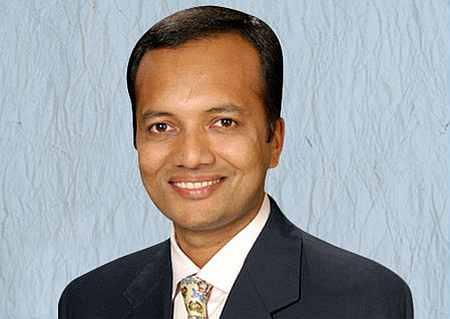
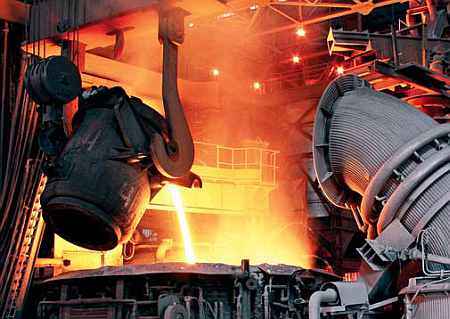
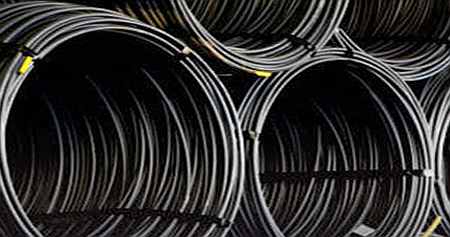
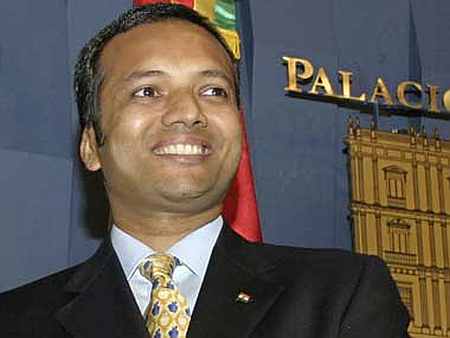
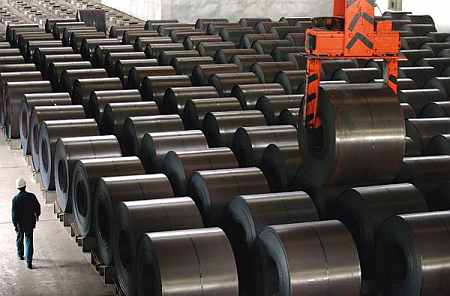
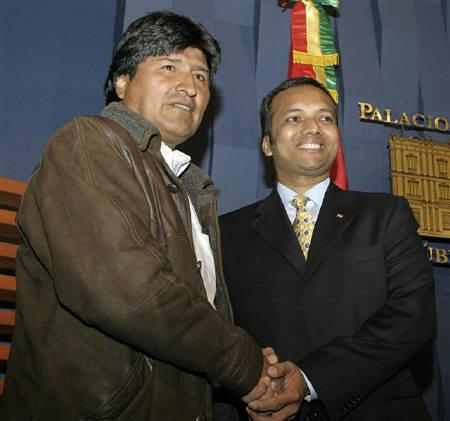
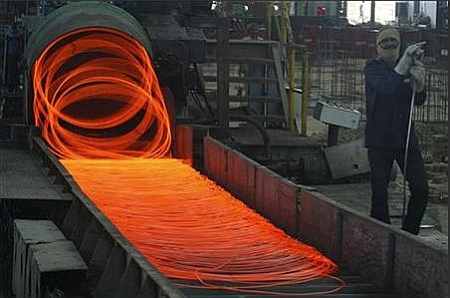
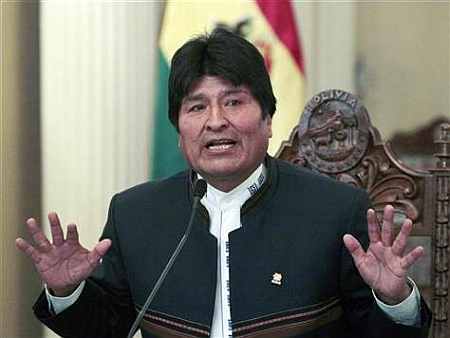
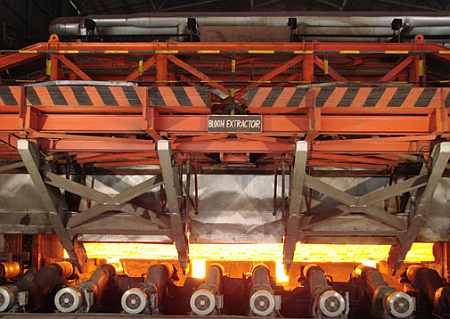
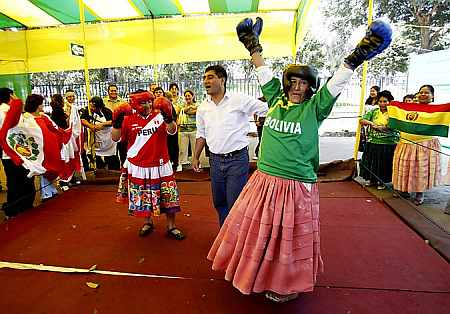
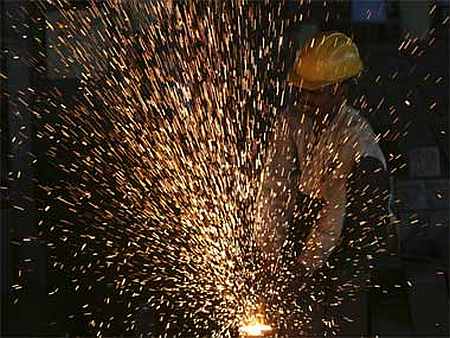
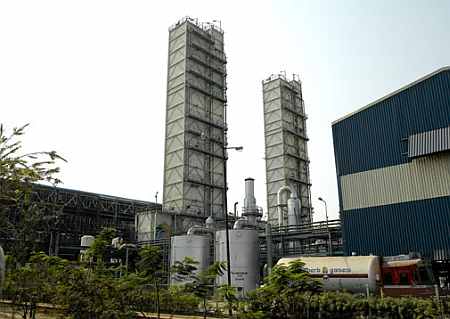



article